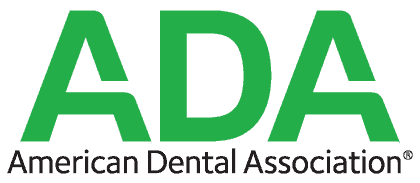Debating Lingual Braces?
These Pros and Cons May Help
These Pros and Cons May Help
When it comes to orthodontic treatment, most people know about braces and clear aligners. But those aren’t the only two options. Hentscher-Johnson Orthodontics also offers lingual braces. Unlike traditional braces, lingual braces fit behind the teeth, making them nearly invisible.
Lingual braces have several pros and cons. Are they suitable for you? Let’s explore this option!
What Are Lingual Braces?
Lingual braces are a type of braces considered an alternative option to traditional metal braces. Traditional braces are placed on the outside of the teeth, whereas Lingual braces are placed on the inner side of your teeth. In other words, they’re on the same side as where your tongue is located — the lingual side!
Aside from the placement location, lingual braces are very similar to traditional braces. They use brackets, wires, and elastic bands to apply gentle pressure to your teeth. That pressure moves your teeth into their proper position.
Advantages Of Lingual Braces
Lingual braces have several advantages that make them a popular choice for adults. They are also gaining popularity with teenagers. Let’s talk through the advantages!
Nearly invisible
Unlike front-facing braces, lingual braces are nearly impossible to see without opening your mouth very wide. People likely won’t know you’re wearing braces unless you tell them. And you won’t have to worry about taking out and storing aligners every time you eat or drink. So you get the aesthetic look you might want with Invisalign without worrying about losing a tray!
Possibly less discomfort
Studies vary on this, but some have shown that patients have less discomfort overall with lingual braces than traditional braces. The reason is that they don’t irritate the tongue as long as traditional braces irritate the lips and cheeks. However, this can vary from patient to patient. At the very least, lingual braces don’t seem to have any more discomfort than traditional braces.
Same lifestyle changes
You’ll have the same food restrictions as traditional braces — avoiding hard, crunchy or sticky foods — but you won’t have to worry about keeping track of how long you wear them as you would with clear aligners. You’ll brush and floss with these just as you would with traditional braces. In other words, they carry the same changes as with traditional braces, but not more.
Treats most issues
Lingual braces have an advantage over clear aligners in that they can treat most orthodontic issues, just as regular braces can. The exception is deep bites because brackets may pop off more often if the deep bite is extreme. Otherwise, lingual braces are an excellent option for those with single or multiple dental issues.
Disadvantages Of Lingual Braces
While lingual braces have several advantages, there are also a few things to consider before deciding whether to use this type of treatment.
Not ideal for some deep bites
Lingual braces work well with many of the same dental issues addressed by traditional braces. However, they may not be ideal for dental problems such as deep bites or severely twisted teeth. In those cases, traditional braces are a better option.
Temporary speech impediment
Lingual braces can temporarily cause a slight lisp after they are first placed on the teeth. Usually, this lisp will disappear as the patient gets used to having the braces there. If the lisp doesn’t disappear, you may need help from a speech therapist or pathologist. In most cases, however, the lisp is temporary.
Tongue discomfort
Lingual braces can irritate your tongue, just as traditional braces can irritate the lips and cheeks. This is usually temporary and limited to the first week or two. As time goes on, your tongue will get used to having the braces there and will “toughen up.”
Eating soft foods the first week can help reduce the discomfort, along with the soreness of your teeth and gums that comes from having the braces put on in the first place. You also can try taking an over-the-counter pain reliever such as acetaminophen or ibuprofen or use an oral gel pain reliever such as Ambesol or Orajel.
Higher cost
Lingual braces can cost more than traditional braces, so if you’re looking for a budget-friendly option, this may not be it. The cost will be dependent on treatment time and the amount of treatment necessary. We will talk about the cost during your no-obligation consultation.
Are Lingual Braces Right For You?
Lingual braces are a great option for those looking for invisible treatment without the added responsibilities of clear aligner care and maintenance. Want to know more? We have more information on lingual braces, including answers to some of the most common questions about them.
If you live in the Columbia, IL, area, you can start a virtual consult with Hentscher-Johnson Orthodontics, and then schedule an evaluation in the office when you’re ready. Dr. Jodi Hentscher-Johnson will look at your orthodontic issues and determine whether lingual braces are a good option for you. Contact us today to learn more!

















